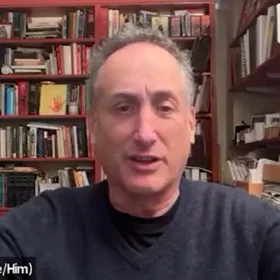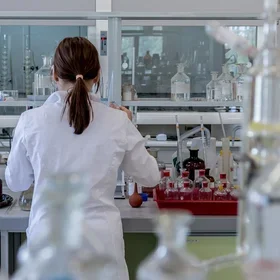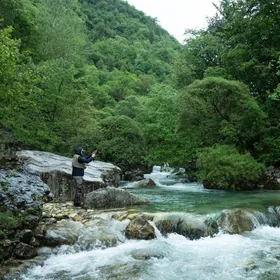By Iza Martinez
As the world grapples with the accelerating impacts of climate change, few ecosystems are under more immediate threat than tropical coastal environments. Coral reefs, mangrove forests, and seagrass meadows are disappearing at alarming rates, eroding biodiversity and the cultural and economic foundations of coastal communities. The recent global bleaching event (the fourth case of mass coral bleaching and second in just the last decade), announced by NOAA and the International Coral Reef Initiative (ICRI) in April 2024, has laid bare the striking vulnerability of coral reefs.
In the face of this global ecological emergency, education will be a critical tool for resilience and restoration. A new summer course in Columbia University’s M.S. in Sustainability Science (SUSCI) program, SUSC PS5400 Sustainability and Resilience of Tropical Coastal Ecosystems, has emerged as a timely and field-based response to these challenges. Set in the Cayman Islands, the course brings students directly into the heart of the dynamic interactions between coral reefs, mangroves, and seagrass systems. Based at the Central Caribbean Marine Institute’s (CCMI) Little Cayman Research Centre, students will explore the biological, ecological, and socio-political significance of these ecosystems—bridging cutting-edge science with on-the-ground conservation.
The course was developed by Brendan Buckley (SUSCI co-director, Lamont Research Professor at the Lamont-Doherty Earth Observatory (LDEO), and longtime member of the Tree Ring Lab at LDEO) and William F. Precht (director of coastal and marine science programs at Bio-Tech Consulting), who are both committed to exemplifying the interdisciplinary and applied education that our planet urgently needs. Buckley and Precht bring decades of global field experience to a curriculum designed to prepare graduates for careers in environmental science, marine conservation, climate adaptation, and ecosystem-based management. They will be joined by Gretchen Coffman (senior lecturer at the National University of Singapore in the Department of Geography, and associate director of Environmental Studies) and Chandler Precht (director of external affairs and communications for SUSCI and the M.S. in Sustainability Management (SUMA), and lecturer in Professional Studies).
Before the group jets off later this summer, the lead instructors answered some questions about the making and expected delivery of the course. In this comprehensive interview, they discuss the inspiration behind it, the unique learning experience it offers, and their hopes for how it will shape the next generation of sustainability scientists.
What inspired the creation of this course, and why was the Cayman Islands chosen as the location for fieldwork?
Buckley: The inspiration came from another course I teach in SUSCI, SUSC PS5020 Predicting the Effects of Climate Change on Global Forests. Starting in fall 2020, I began inviting [Precht] and Gretchen Coffman as guest lecturers to talk about mangrove forests and restoration efforts. They are both international experts in mangrove restoration, and their lectures became a key part of my course.
Collaborative discussions about developing a new field course began in 2021, culminating in the launch of this course this year. We chose the Cayman Islands due to [Precht’s] longstanding work there and its unique accessibility as a tropical marine environment suitable for a summer field course. Its near-shore coral reefs offer an unparalleled opportunity to study the dynamic interplay among mangroves, seagrass meadows, and coral reefs—the central ecosystems of our course.
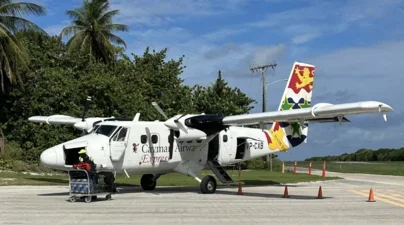
Photo by William F. Precht
How does this course build on or differ from other marine science or sustainability curricula?
Precht: There is no tropical marine ecology program at Columbia that addresses resilience or sustainability issues in these ecosystems, and certainly no other field courses quite like this. While similar courses exist at other institutions, what makes this one unique is that it’s not just academic, but has an applied, real-world aspect to it.
Buckley: What sets this course—and the M.S. in Sustainability Science program—apart is its truly holistic and, as [Precht] said, applied approach. We are looking at the dynamic relationship between three marine ecosystems: mangrove forests, seagrass meadows, and coral reefs. While we will study each of these ecosystems separately, the emphasis will be on their interdependence and the synergies that exist between them. In addition, students will engage in field discussions and hands-on learning focused on both the science and practice of restoring these threatened systems.
What learning outcomes were most important to you in designing the course?
Precht: We designed the course such that students get a broad scientific background in tropical marine ecology and then learn to translate that knowledge into on-the-ground sustainability programs. Beyond that, we want to provide students with experience with science-based decision-making in policy and management.
Buckley: Our goal is to help students develop a deep appreciation for the complexity and interconnection of these ecosystems, all of which are increasingly impacted by human activities. We also want to instill a sense of hope and possibility by showcasing viable strategies for conservation and restoration. Students will critically evaluate real-world approaches to managing and restoring ecosystem services. They will emerge with scientific insights and practical tools for sustaining these vital coastal environments into the future.
How will you balance lectures, fieldwork, and community engagement to give students a holistic understanding?
Precht: Striking that balance is central to the course design. The day begins with science-based lectures to ground students in the ecological principles and systems they'll encounter. From there, we transition to field observations and hands-on data collection. Then, students will connect their field-based experiences back to real-world policy and management implications. Throughout the course, we will meet with local environmental administrators and regulators, as well as local stakeholders; these include, but are not limited to, fishermen, resort owners and eco-tourism programs. These meetings will shed light on the environmental issues they deal with daily and what can be done to help them.
A central mantra of the course will be the adage: “Act locally, think globally!” By understanding the immediate, place-based impacts of climate change and other human activity, students will also gain insight into broader patterns of global ecosystem disruption and how targeted, community-based efforts can inform and inspire larger-scale solutions.
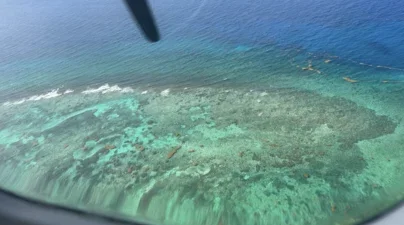
Photo by William F. Precht
Can you describe a typical day for students in the course?
Buckley: A typical day will involve getting one’s hands dirty and one’s feet wet in three wonderfully unique environments within arm’s reach of the CCMI facility. The students will enjoy great food and comfort in the dormitory space while spending most of each day in the field observing, measuring, and learning about mangroves, seagrass, and coral reef ecosystems.
How has your background in marine restoration informed your approach to teaching and field mentoring?
Precht: Interestingly enough, it’s been the other way around for me. I gained a foothold in coral reef and seagrass restoration thanks to students I taught early in my career, and ultimately reshaped my professional focus. Over the last 35 years, I’ve taught in similar field programs, and specifically have taught tropical marine ecology field classes to over 600 students in that time. Each cohort has shaped my approach to both teaching and mentorship.
Anything else you’d like readers to know?
Precht: I took a similar class to this in my senior year as an undergrad, and it changed my life. It’s the reason why I do what I do today, and it is my desire for this course to have the same impact on the graduate students in the SUSCI program and other sustainability-related programs at Columbia. Besides the fact that I hope everyone in the course has fun, I want it to open up lasting opportunities and experiences for them.
Buckley: This course promises to be a transformative experience—both intellectually and personally. It is designed to be rigorous, but also deeply rewarding. Students will gain not only academic knowledge, but also a profound sense of stewardship through direct engagement in ecological restoration. This is experiential learning at its finest, offering a rare opportunity to contribute to real-world environmental solutions while exploring the planet’s most extraordinary coastal environments.
About the Program
The Columbia University M.S. in Sustainability Science program, offered by the School of Professional Studies in partnership with the Climate School, prepares students for management and leadership positions in which they help organizations address environmental impacts. Students learn strategies to respond to the ever-changing environment and predict future environmental changes—and the impact on corporations, not-for-profits, and the public.
Designed by Research Faculty at the Lamont-Doherty Earth Observatory in collaboration with Columbia’s Earth Institute, the program develops a new generation of scientific leaders through a cutting-edge curriculum led by the world’s top sustainability scientists, the majority of whom are Lamont Research Professors. Graduates are well prepared for management and leadership positions, armed with the scientific expertise to drive meaningful environmental change and lead organizations in a rapidly evolving sustainability landscape. With the flexibility to choose from a variety of courses, students can tailor their education to career goals, while New York City serves as a living laboratory for sustainability innovations and connects them with employers actively seeking program graduates.
Learn more about the program here.
